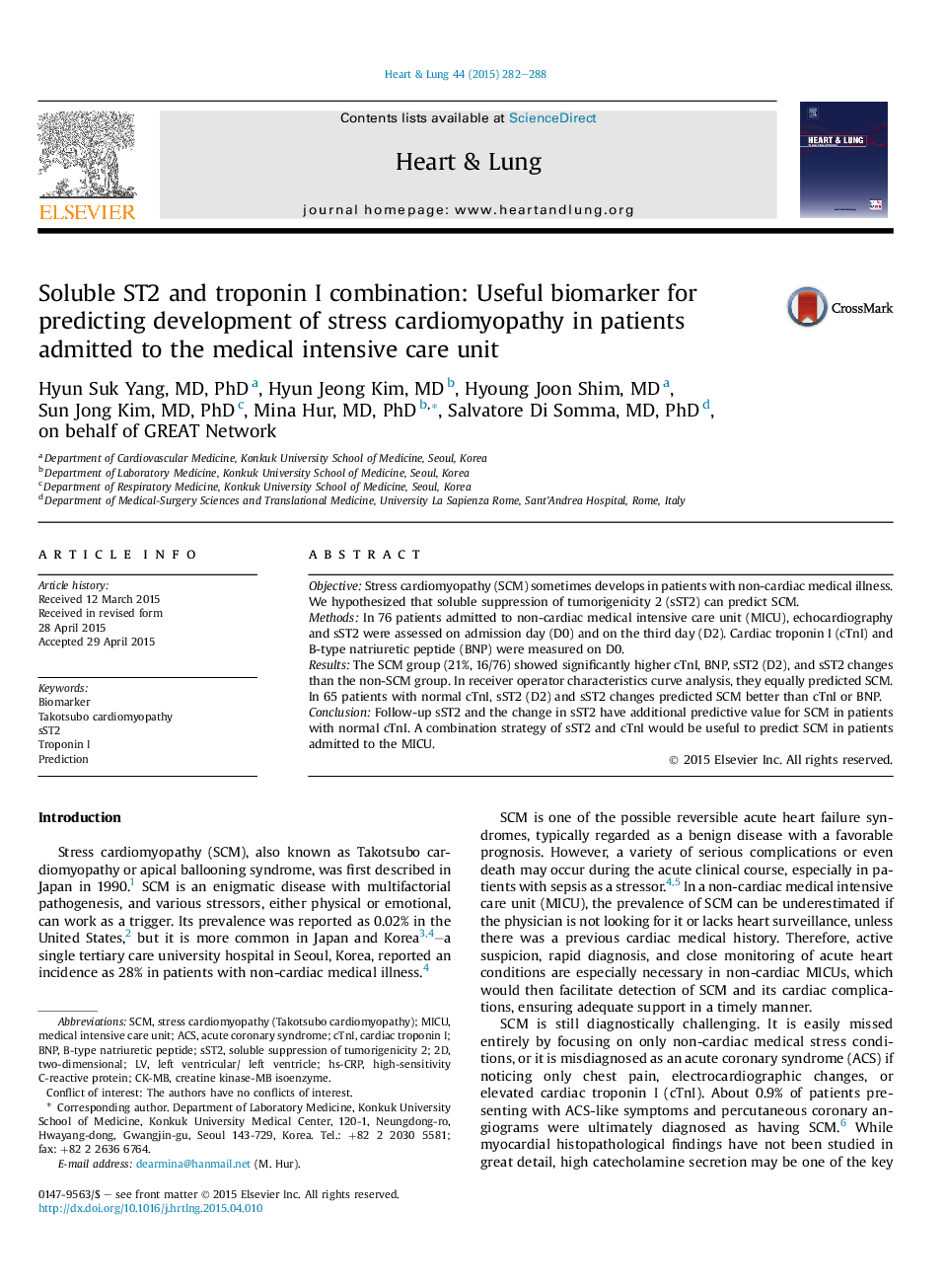| Article ID | Journal | Published Year | Pages | File Type |
|---|---|---|---|---|
| 2651733 | Heart & Lung: The Journal of Acute and Critical Care | 2015 | 7 Pages |
ObjectiveStress cardiomyopathy (SCM) sometimes develops in patients with non-cardiac medical illness. We hypothesized that soluble suppression of tumorigenicity 2 (sST2) can predict SCM.MethodsIn 76 patients admitted to non-cardiac medical intensive care unit (MICU), echocardiography and sST2 were assessed on admission day (D0) and on the third day (D2). Cardiac troponin I (cTnI) and B-type natriuretic peptide (BNP) were measured on D0.ResultsThe SCM group (21%, 16/76) showed significantly higher cTnI, BNP, sST2 (D2), and sST2 changes than the non-SCM group. In receiver operator characteristics curve analysis, they equally predicted SCM. In 65 patients with normal cTnI, sST2 (D2) and sST2 changes predicted SCM better than cTnI or BNP.ConclusionFollow-up sST2 and the change in sST2 have additional predictive value for SCM in patients with normal cTnI. A combination strategy of sST2 and cTnI would be useful to predict SCM in patients admitted to the MICU.
